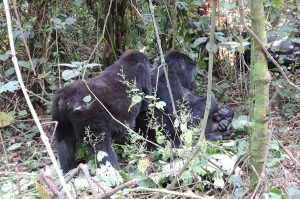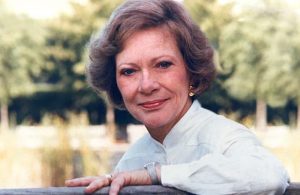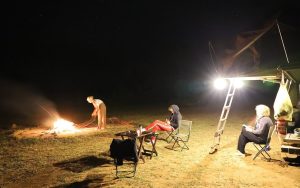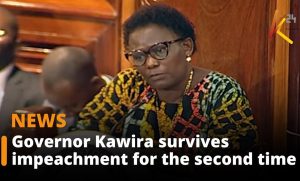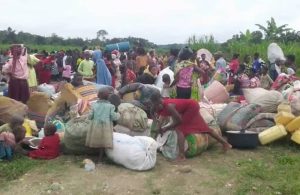Story as told by Robyn C. Spencer
“I had a wonderful time in Uganda. I felt safe here, like I belonged there, like there is a culture of kindness and hospitality that envelops you from the first moment you step off the plane. The weather is warm, the food is delicious and the landscape is simply beautiful. Yes, there is poverty and want but despair is in short supply.
At almost every school I met at least one Ugandan who had been educated in the United States and had come back home to uplift their people. Many of the institutions we visited were fewer than ten years old, yet most had taken steps to partner with US institutions and were creatively managing their resources.
Uganda is no utopia. The legislature is currently considering a draconian anti-homosexuality law, the president wants to rule for life and the gender tensions bubbling under the surface are both provocative and troubling. Uganda has come a long way but there is still a long way to go. However, it is still an incredibly worthwhile place to visit and especially to volunteer as an educator. I know that Sira and I will be back one day.”
My account of ten memorable days in Uganda
A few years ago I spent ten days in Uganda delivering African American history lectures and meeting with academics at close to half a dozen educational institutions. Traveling for work often squeezes true enjoyment into the margins of a schedule dictated by others and often positions one as an outsider.
However, Uganda was different. Teach and Tour Sojourners, the organization overseeing my schedule and transport, accommodated my desire to see “everything,” do as much as possible and eat, breathe and live like a local. The day after I arrived with Sira, my four year old daughter, in tow, I was hurtling in a jeep towards the source of the Nile River, a convenient detour from my first lecture. It is not an exaggeration to say that it was a full immersion experience to find myself headed on a two hour road trip to the source of the Nile River after being in the country for less than 24 hours.
The window of the truck was my window into this new world. And the roads, which alternated between bruised passagewaysfilled with random yawning holes that often forced drivers to careen into oncoming traffic or devise shoulders out of thin airand incredibly smooth and modern stretches of highway became a metaphor for my experience.
I took in everything I saw, realizing quickly that the city was a place of stark contrasts: development and underdevelopment; urban and rural; modern and traditional. In the urban areas billboards were everywhere. They advertised everything from OMO soap powder to MTN the ubiquitous cell phone service providerto the various social and political messages: Voting is important. Remain abstinent. HIV/AIDS can spread in social networks. Beenie Man and R Kelley will soon be in town giving concerts. Abortion is murder. Domestic Violence is wrong. The prevalence and diversity of these signs indicated a vibrant consumer culture and a national conversation about gender, health and culture.
There were also many references to Barack Obama, from modest corner stores bearing his name to the slogan “Yes we can” written on the back of informal taxis. Once you left the city, the landscape was breathtaking, lush with greenery and vegetation. The contrast between the countless shades of green of the grass and fields, the richness of the reddish hued earth and the blue of the sky was simply stunning.
After a few days of travel, this scenario became familiar. Industriousness was everywhere. Everyone that I saw during my daily drives around town was busily engaged in work: hawkers, washerwomen, school children, bikes, taxi driver and boda boda (motorcycle cabs) operators. Stores both formal and informal seemed to be thriving. Class diversification was marked by clothing, vehicle ownership and other markers of consumerism. Poverty and struggle was evident but there were very few people panhandling, very few street children and crime was relatively low. Doors were not immediately locked upon entry to the car, money was freely carried about, and there was little public fear or expectation of malevolence from strangers. The hospitality, openness and humility of the people were almost palatable.
Although my longer natural hair set me apart from the women wearing either short naturals or weaves/braids, my dark complexion was the norm and allowed me to blend in a bit more. American music was incredibly popular and we soon got used to being lulled to sleep by US r&b courtesy of the informal night spot that adjoined the guesthouse, which was located in a typical suburb. We would also get used to being woken before dawn by a crowing rooster that Sira dubbed “Clockadoodle.” Sira and I learned to “make do,” to eliminate waste, that limited choices were livable, and that one person’s home can be another person’s workplace. We happily gave up the creature comforts of life in the US and enjoyed the unique things and simpler pleasures that Uganda had to offer. Free range meats, sustainably produced vegetables and pungent and accessible fruits were tops on our list.
That weekend we went to Murchison Falls National Park, located several hours from Kampala in Northern Uganda almost at the border with Sudan/Congo. We saw many aspects of rural life en route. We spent the night inside of the park, visited a waterfall, and enjoyed a morning game drive and a pm boat ride before returning home. It was a wonderful experience. It was also very touristy. The minute we set foot in the park, I went from part of the majority to being the only black face outside of staff and workers. It was disconcerting to say the least but such is the politics of safari tourism.
Although I appreciated the natural splendor of the park and the many wild animals and exotic birds we would observe on our game drive, these realities weighed on my mind during the weekend. After another few days of university visits, I ended my trip with a day dedicated to visiting local museums to learn more about cultures and ethnicities in Uganda and a visit to the nature conservancy on Lake Victoria.
About the Writer
Robyn C. Spencer received her PhD in History from Columbia University in 2001. She was an Assistant Professor of African and African American Studies, and History at Penn State University from 2001-2007 and currently works as an Assistant Professor of US History at Lehman College in the Bronx, NY. Through writing, teaching and public presentations, she aims to educate others about the contributions of urban, working-class African Americans, especially women, to the Black freedom movement. Her areas of expertise include Black social protest after World War II, urban and working-class radicalism, and gender. She is currently completing a book on the Black Panther Party’s political and organizational evolution in Oakland, California and beginning a new project on the movement against the Vietnam War in Black America. Professor Spencer’s research tracing the path of social protest movements has taken her to dozens of states, Europe and six African countries. Recently, she has begun to publish materials from her extensive travel journals.
